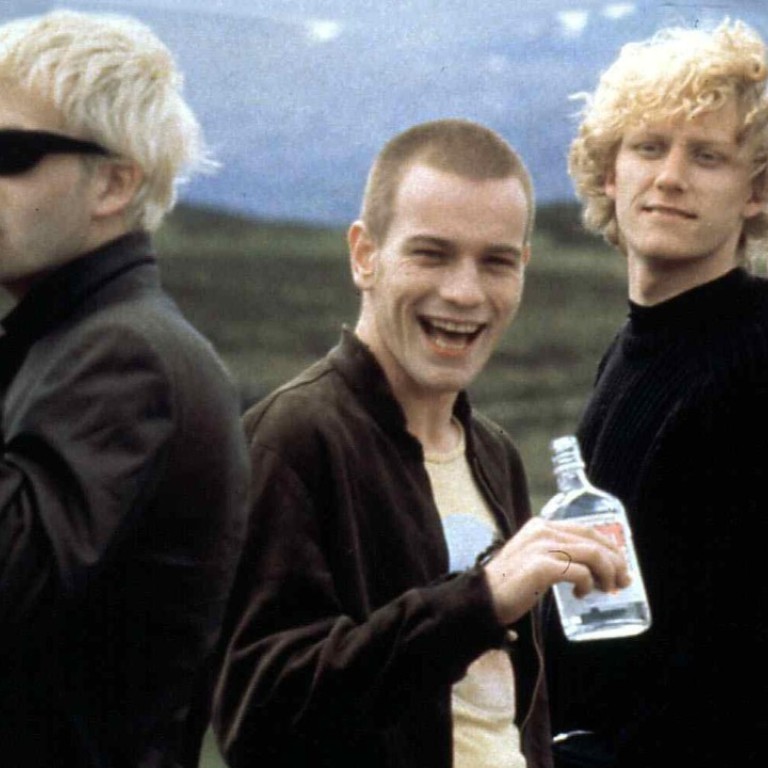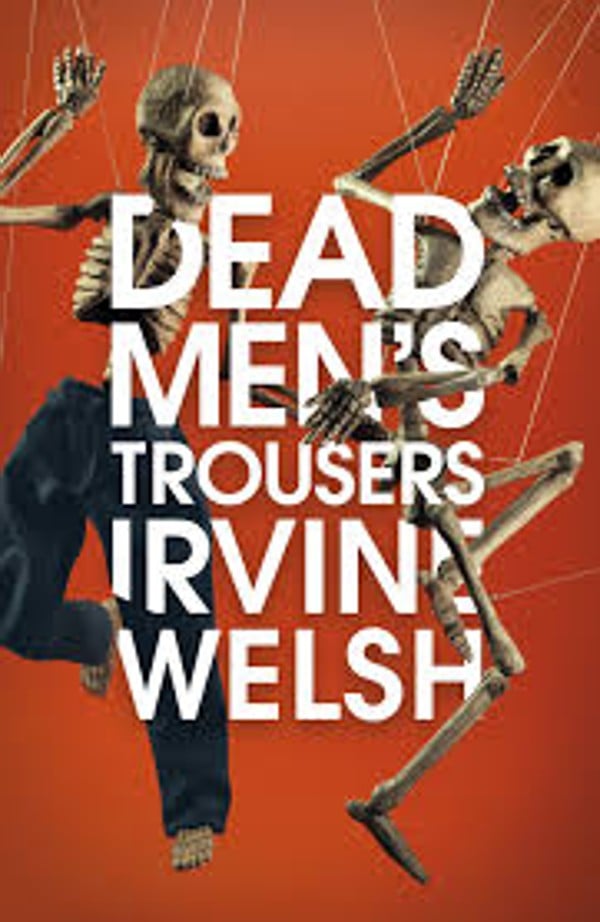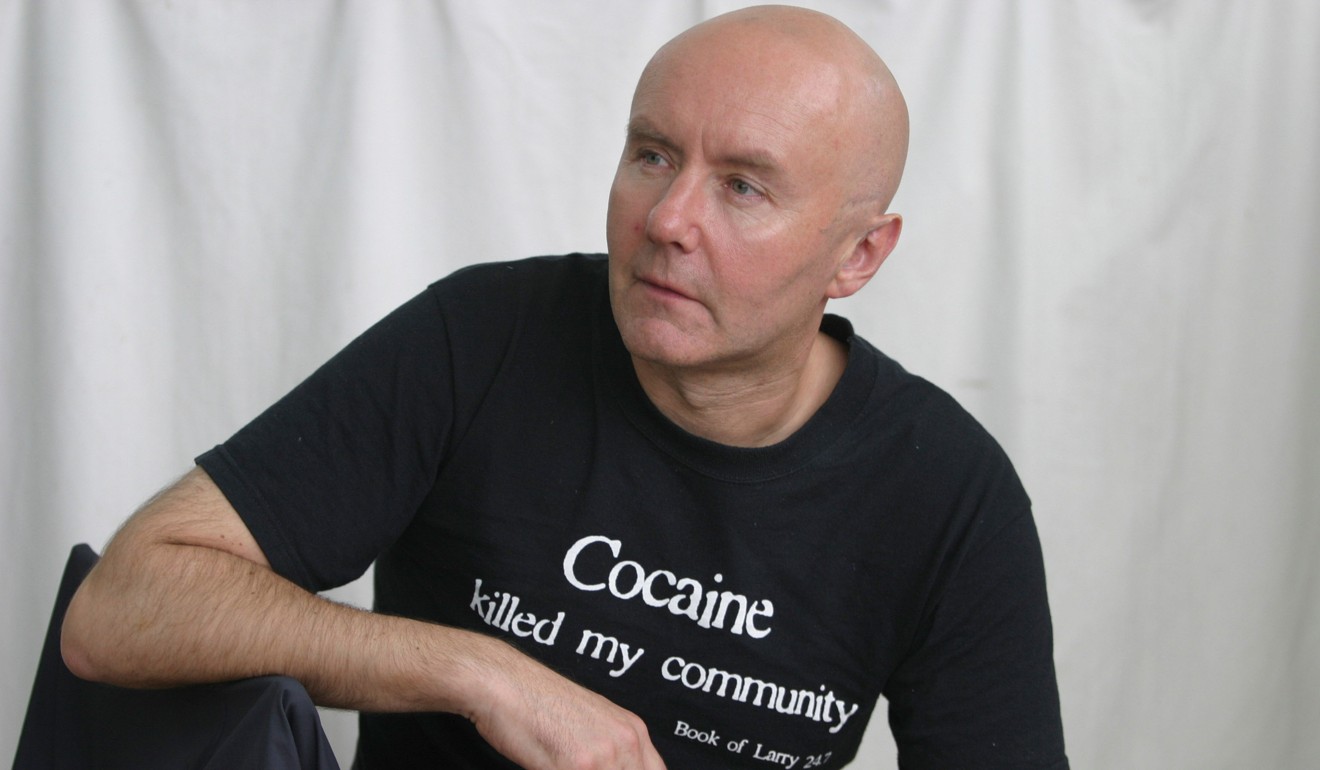
Review | Trainspotting author back to doing what he does best
Drugs, debauchery and untimely deaths: it’s business as usual in Irvine Welsh’s latest instalment in the successful series
Dead Men’s Trousers
by Irvine Welsh
Jonathan Cape
“The dog ate it” has never been a smart excuse for failing to deliver an assignment. In Dead Men’s Trousers – the new novel from Irvine Welsh, and which regroups the heroin-addled Scottish reprobates from his gritty, mega-selling debut Trainspotting (1993) – core character Spud’s failure to meet his deadline results in sex-tape blackmail, a grisly form of drug smuggling, YouTube-assisted DIY surgery and death for one of the gang.
It would be wrong to call Dead Men’s Trousers the second Trainspotting sequel, after 2002’s Porno. Welsh’s output has long had a “shared universe” aspect, with Renton, Sick Boy, Spud and Begbie variously starring or making cameo appearances in other novels and short-story collections, including The Acid House (1994), Marabou Stork Nightmares (1995), Ecstasy (1996), Filth (1998) and Glue (2001). Dead Men’s Trousers could instead be seen as an extrapolation of The Blade Artist (2016), Welsh’s zesty but far-fetched thriller in which psychotic Begbie has reinvented himself as Jim Francis, a successful artist now resident in sunny Santa Barbara, California. The new, improved Begbie has a beautiful wife, darling daughters and a penchant for Pilates, but his darker side still lurks beneath the perma-tan.

Renton, who ripped off Begbie and his other pals for the proceeds of a drug deal at the end of Trainspotting, to escape his shiftless life of petty crime and self-pity (and occasionally injecting smack into his penis), is now living between Amsterdam and Los Angeles (just down Highway 101 from Santa Barbara).
Managing spoiled, spoon-fed DJs for a living, heroin-free Renton is now financially sound, though he despairs at life on the road – anonymous hotel rooms, incessant jet lag, strained relationships – and his drugs of choice are now “ching” (cocaine, to keep him going) and the sedative Ambien (to calm him down).
The drama begins where The Blade Artist left off, and Renton has been cornered by Begbie on a flight to LA. Renton has been in hiding since the end of Porno, when Begbie was hit by a car as he chased him through the streets of Leith.
Amazingly, the violent sociopath of old wants no revenge. Begbie tells Renton that he was better off without the drug-deal cash, which he would have blown on booze anyway. (Begbie had always been heroin-free – his preferred drugs being alcohol and hurting people; the new Jim Francis sips only mineral water.)
An old friendship is cautiously rekindled.
Mercenary Sick Boy, meanwhile, is headquartered in London, from where he runs his “sophisticated” escort agency, Colleagues. He still fumes over the fact that Renton scammed him a second time, in Porno, trousering £60,000 of ill-gotten cash. Poor Spud has not travelled far, and is begging on the streets of Edinburgh.
Renton has dabbled in the 12-step Narcotics Anonymous programme in California, and believes it necessary for his own salvation to make amends (financially, at least) for the betrayal of his friends. With Begbie no longer on his case, he can raise his head above the parapet back in Scotland. The scene is set for the gang’s paths to cross again.

As in previous books, Welsh employs multiple narrators, with chapters presented from an outsider’s perspective or told by one of the four key characters, employing Scottish dialect and north Edinburgh inflections and slang of varying intensity.
Spud’s lingo is the trickiest to decode, though never impenetrable. The first words from the hapless down-and-out in Dead Men’s Trousers are: “A soft Squezy-boatil heartbreak whine leaks ootay the wee gadge. He needs tae git a trim likesay, ye kin barely see they wee sparkly wee eyes through yon fur.”
Spud is talking, of course, of that dog (or should that be “dug”?), his West Highland terrier. Though Toto’s role is small in Dead Men’s Trousers, his impact is catastrophic. The mutt’s hunger – and Spud’s ability to make a dog’s dinner of even the simplest of tasks – slams the so far slow-moving tale into a higher gear.
Marketing for Dead Men’s Trousers boldly states that of Renton, Begbie, Sick Boy and Spud, “one will not survive this book”, making it tricky to summarise without unleashing a spoiler to end all spoilers. Let’s just say that Welsh’s tale is squeezed (“squezed”?) tight with double-dealing, casual drug use, cartoon violence, dysfunctional male bonding and crude misogyny (mainly from Sick Boy), all packaged to be acceptable to middle-class professionals – a substantial chunk of Welsh’s fan base. Then throw in black-market organ harvesting, mid-life crises, dispiriting Tinder hook-ups, revenge fantasies and football.
Dead Men’s Trousers is, after all, a book by Irvine Welsh, and that’s its strength and its weakness. It’s all very 1990s, recalling the laddish antics of Loaded magazine, and days when the author could be seen in tabloids, stumbling out of London’s Groucho Club with Blur and Damien Hirst.

It is said, of course, that we all become more like ourselves as we get older, and the protagonists here (with the exception of Spud) are increasingly loathsome people: Sick Boy is shallow and amoral; Begbie is a bullied-as-a-child maniac whose only love is inflicting pain; and scratching the scales of Renton reveals a snake who perhaps should never be trusted.
And there’s something unedifying about the Edinburgh-born writer – once described by the now-defunct urban-style magazine The Face as “the poet laureate of the chemical generation”, and these days based in sunny Miami, Florida – still wearing shock tactics like a punky badge of honour; still trumpeting at the age of 59 (and including in his jacket bio) that Trainspotting “was rejected from the Man Booker Prize shortlist, allegedly for offending the judges”.
That said, Dead Men’s Trousers is what it says on the tin: Welsh doing what he does best.
Dead Men’s Trousers is slapstick fun, with gratuitous sex and gut-churning butchery, and perhaps should not be taken too seriously
The formulaic set pieces, reheated urban myths and smutty jokes are all there, and guilty fun. As in Trainspotting, there’s an excruciatingly embarrassing moment around a family dinner table, and Renton’s star client, who goes by the name DJ Technonerd (really? Groan), wakes minutes before a gig in Barcelona to discover that somebody has super-glued a dildo to his forehead.
But the most exasperating thing about Welsh’s writing – and he’s been doing this since Trainspotting – is that he clumsily shoehorns his own socio-political opinions into the foul mouths of his characters. Here there are cookie-cutter tirades against neoliberalism, the greed of the one per cent, a bleak future when jobs will be taken by robots … Enough, Irvine! Just get on with the yarn!
Back in 1993, Trainspotting the book was lauded for its realism. Nobody could accuse Dead Men’s Trousers of that. Rather it’s a pleasing opportunity to live precariously through low-life characters that many of us have grown up (or old) with, and whom Welsh says he has now retired (let’s see). It’s slapstick fun, with gratuitous sex and gut-churning butchery, and perhaps should not be taken too seriously.
When a tweet pondered last month whether Dead Men’s Trousers might be retitled for the American market, Welsh himself replied: “No doubt some snootier critics will simply refer to it as pants.”
